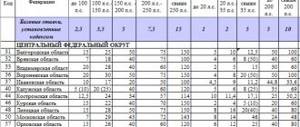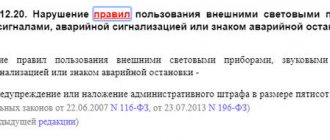Who are car dealers?
The business of repurchasing is to buy a cheap car in poor condition, slightly repair it, make it look marketable, remove all obvious faults and sell it at a higher price, as if it were in good technical condition.
It would seem that there is nothing wrong. But the whole point is that resellers often try to deceive sellers and buyers and profit from their inexperience by staging entire performances. Therefore, car owners who have already fallen for their bait try not to get involved with intermediaries.
Where to find them
Car resellers are very common; they look for clients themselves, aggressively offering their services.
Where you can meet representatives of this business:
- by advertisement;
- at the car market;
- in a private car showroom;
- on social networks;
- on automotive websites.
If you are selling a car, then you don’t have to look for anyone; they carefully monitor the market, looking for new cars. Rest assured, the very first call regarding a fresh ad will be from him.
The reseller can be identified by the following actions:
- makes an appointment almost immediately and as quickly as possible;
- a potential buyer immediately demands to see the documents, not the car, it is important for him to be the second buyer according to them;
- it turns out that your car has already been checked in advance for the number of accidents;
- refuses the deal if he sees that you are not the first owner of the car.
By the way, the phone number of car resellers is often repeated on various websites, so don’t be lazy and enter the phone number into a search engine. And it will immediately become clear to you who is rushing to meet you.
How they work
Representatives of this business are engaged in buying cars cheaper and selling them more expensive. By the way, these are not necessarily scammers; some of them try to work in whitewash. And if the seller needs to sell the car quickly, then by giving a little, he will receive the money faster.
Outbid tricks
Dealers have a huge number of tricks in their arsenal, trying to force the seller to reduce the cost as much as possible.
Unscrupulous buyers use the following methods:
- tries to find as many shortcomings as possible in the car, finding fault with everything, intending to reduce the price as much as possible;
- brings money for inspection, but at the same time a smaller amount than the seller asks for and diligently induces a quick sale;
- A group of people came for the inspection: a pretty girl, a man and an “experienced technician” - get ready for tough pressure;
- “playing with their face” when listening to the engine;
- are asked to undergo diagnostics at the seller's expense.
If you are sure that your car is in good condition and is worth the money, then simply refuse the unfavorable conditions imposed and calmly stop this circus. Know that your buyer will definitely find you.
However, buyers are also suffering.
Common tricks of unscrupulous sellers:
- before the transaction, they do not show the technical passport of the car, since the original owners are listed there;
- indicate a later year of manufacture;
- the ad contains incorrect information about the condition of the car;
- twist the mileage;
- sale of cars after flooding or from taxi depots as new;
- sale of stolen or pledged cars;
- To muffle the noise of faulty engines, add liquid to the engine.
How to buy a car from a dealer?
As we mentioned above, there are two most common schemes for car resellers, depending on the fact that they have transferred ownership of the car:
- the reseller purchases the car in his own name, drawing up a DCP in his name and entering himself into the title, but not registering it with the traffic police (less often),
- the reseller takes a completed form from the direct seller with his signature, but with blank fields for the buyer’s signature and date; As a result, you, as a buyer, formally enter into an agreement directly with the seller (more often).
The second point has a significant advantage for you in the sense that there are no extra entries in the PTS - the reseller does not appear there. But you won’t find out the real price of the car either - the contract will already include a price that is favorable to outbid.
There is also a disadvantage - you have no idea who this buyer is. And if problems arise when registering a car, it will most likely be impossible to contact the latter.
We have already discussed the question of how to properly buy a car second-hand in the corresponding article. We have described all stages of inspections and instructions for registering the car. Below we present the details of purchasing a car exactly according to the above schemes.
If the reseller has executed the contract for himself
Everything is quite simple here. You buy a car from a reseller, and it is he who is the owner based on the purchase and sale agreement. The fact that he has not re-registered the car with the traffic police does not play any role - ownership is transferred on the basis of a purchase and sale agreement.
Therefore, almost all checks and procedures are the same as when buying a car directly from the real owner. Except one. Since the traffic police registers the car with the real owner, you will need the entire chain of contracts to reach you: the first - from the seller to the reseller, the second - from the reseller to you.
The PTS must also include first the repurchase, and then you as the last buyer.
If the reseller is not included in the contract
The second option involves only one DCP - from a real seller to you. And in this case, only this agreement will be sufficient for you to re-register with the traffic police. Also, the PTS will not contain an extra entry from the reseller, which will provide additional benefits when you subsequently sell the car in the future.
These are the advantages. Now about the cons! As we already mentioned at the beginning of the article, in this case the contract will be drawn up with someone unknown for you. In fact, you do not see the seller, but you make a deal with him.
What does this give? You cannot change the policy if some points do not suit you. You will not be able to conclude an agreement by a notary, even if the outbidder agrees, because the notary will not agree to conclude the deal in the absence of one of the parties. However, this issue can be resolved by a power of attorney for the right to sell from the owner to outbid. But again, you formally buy a car from a real seller, without knowing who he is or what debts he has.
If a registration ban is imposed on the car, it is listed as wanted or stolen, then the “tails” may not be found.
In this case, you need to be twice as careful when checking the car for cleanliness, as we described in the article about buying a car second-hand. Ideally, entrust this task to professionals - car selectors (but even though they will do this work better, they will not give any guarantees).
What if I pay upon registration with the traffic police?
In the previous article, we proposed, as an ideal purchase option, to offer the seller payment upon successful re-registration of the car in your name as a buyer with the traffic police. Some sellers interested in a deal do this.
But outbids happen much less often. You need to understand that the sales circle of resellers is much wider than that of ordinary sellers, so your refusal to buy a car from a reseller if he refuses your condition for transferring money will not knock him down too much - he will quickly find another buyer.
However, it is possible to interest the reseller with an additional payment (which, of course, must also be made along with the payment for the purchase based on successful registration with the traffic police).
Another option is to leave a deposit for the car so that the buyer is confident in your intentions. But the pledge must be formalized by a notary, and in this case, the contract must include a separate condition on the return of the pledge if it is impossible to re-register with the traffic police.
In any case, a successful ideal scheme, when the reseller agrees to pay only upon registration with the traffic police, is quite rare and only for its completion such a transaction can be considered successful.
How resellers complete transactions
In order not to fall for scammers, you need to know how dealers register cars. Keep in mind that intermediaries often refuse to record a purchase in their name, not only for the purpose of deception, but to speed up the process of concluding a transaction.
There are a number of schemes that intermediaries use:
- on behalf of the real owner of the transport;
- by means of a general power of attorney;
- through two purchase and sale agreements;
- through a commission agreement;
- with registration in your own name.
Let's look at some of them in more detail.
Contract of sale
This method is the most difficult. The point is that there are two contracts. One with the previous owner of the vehicle, his name is entered there, but the car is not registered. The car is resold under the second contract, on behalf of the intermediary.
It should be taken into account that there must be a mandatory agreement between the reseller and the first seller that the vehicle will not be deregistered after the legal 10 days have passed. When registering, the new owner must show the traffic police officer two contracts: the intermediary’s and his own.
A similar method is used if the client is suspicious.
Power of attorney
The scheme of sale by general power of attorney is used very rarely, but from time to time it can be offered, especially if the purchase is inexpensive. The idea is that a general power of attorney is issued to the intermediary with the right to sell the car, and he can entrust the car to another person. However, this is a very risky deal.
In this case there are pitfalls:
- the power of attorney can be revoked;
- In the event of the death of the principal, it loses its force.
Resale without change of owner
The simplest and most common method, it is even difficult to detect the fact of repurchase. There are usually no problems with registration with the traffic police. It is also impossible to make a claim against the former owner.
The first client transfers to the reseller all his data, an unfilled contract form, a PTS with his own signature, and so on. The documents contain all the necessary information, the buyer signs the purchase and sale agreement.
If the owner does not agree to agree to the “gray” scheme, then a standard deal is concluded with him. Another document is prepared for the potential buyer, the information there is similar, but the signature of the previous owner is fake.
Commission agreement
This technique is used by officially registered resellers and legal organizations (salons) with their own sales platforms. A commission agreement is concluded with the seller and the vehicle being sold is presented to potential buyers for a certain fee.
It is also possible to work through an agent by proxy. The rights and responsibilities of the seller are transferred to the intermediary.
Or the dealer buys the goods from the owner. At the same time, he receives a power of attorney for the sale of the car and a financial receipt. Then the intermediary works independently.
Why is it dangerous to buy cars from resellers?
Car speculators are dangerous in their approach to business. Often they make money not by selling cars, but by parking them for sale in a special sump. When a vehicle gets there, the owner is charged a fee for advertising services and for parking at a special site. As a result, even if there are no buyers for the car, resellers have a stable income.
In addition, speculators often buy carsharing cars at bargain prices, and also take vehicles from taxis, adjust the mileage, add a little extra shine, and sell them at a significantly higher price. They often undertake the restoration of damaged cars, which are quickly repaired and sent for sale. Moreover, the technical condition of resold cars still remains sad.
Resellers never invest in expensive car repairs and almost always try to hide serious technical problems under a polished surface.
You can often find cars with serious legal problems from resellers, including those with a duplicate title issued “in replacement of a lost” passport, as well as those that are pledged to the bank. In this case, after the purchase, the buyer risks finding himself without a car and without money. The bank will take the car back without compensation.
A traveling mood. Is it true that a liftback is better than a sedan? More details
How to become a car reseller
At the moment, intermediaries are trying to work in a whitewash, since the market is vast, with great opportunities and good earnings. Many car owners or former repairmen who are well versed in technology are trying to find out how to become a car reseller. Let's try to understand some of the difficulties that beginners face, and also decide which market segment to work with.
Where to look for a car
To buy back cars, you must first find them. And since there is a lot of competition, there is a great chance of running into your brother.
To search for suitable vehicles on the market, you have the following options:
- search on sales sites;
- online auctions;
- auctions of leasing companies, bailiffs and others;
- independent submission of advertising about the purchase of a car to thematic publications, through targeting, search engines;
- distributing leaflets with your proposals;
- posting advertisements;
- stickers on cars, business cards for windshield wipers;
- advertisements in local newspapers;
- search in car dealerships with cars for sale.
This is a small number of options. Over the years of work, each seller develops his own methods and develops professional secrets.
Correct evaluation of the product
One of the most difficult points for beginners in business. Intermediaries risk their money, and the risk of running into an unscrupulous owner is always high. It just seems like it’s easy to resell a car. It is imperative to be able to navigate market prices and set your own.
Some novice sellers prefer to use the services of professionals at first, so that they can point out the technical condition and identify hidden defects.
The main thing to pay attention to:
- year of issue;
- mileage;
- equipment;
- technical condition;
- condition of the body and interior;
- installation of various innovations and tuning;
- season of the year at the time of sale.
All these factors affect the price.
Experienced resellers select and buy cars with minor defects, fix them, and then resell them at a good margin. They see no point in dealing with junk cars, and their reputation will not suffer in the future.
Where to look for buyers
Finding a buyer will not be difficult, especially if the intermediary has a good reputation as an honest dealer. After some time she will work for him. Clients themselves will begin to find it through word of mouth.
However, it is worth making the task easier for them; there are many ways to do this:
- own page on the Internet indicating your occupation and phone number;
- setting up advertising through social networks;
- website;
- submitting advertisements to popular resources;
- maintaining a thematic blog.
How to avoid becoming a victim of car dealers?
First of all, you need to familiarize yourself with the documents available for the car. Study the car's registration certificate, write out your VIN code and check it against various databases on the Internet, which will allow you to find out whether the car is pledged to the bank or whether there are any other restrictions on it. It wouldn’t hurt to ask the seller for his passport; if the data on the title and passport match, then, with a high degree of probability, the owner is selling the car.
The most common scheme for selling cars to resellers is a situation where such a dealer buys a car from the owner, but a certificate-invoice is not issued, and the car is not deregistered from the main owner. In fact, the seller and the person indicated in the PTS are two different persons. But at the same time, the current legislation allows you to draw up a handwritten document confirming the legality of the sale, and subsequently the reseller will also sell the car he has in his hands in a similar way.
If several owners are included in the title or the seller has a duplicate vehicle passport in his hands, this may indicate that the car is being sold by a reseller. Remember that you should pay maximum attention to the documents available for the car when choosing a car. In the future, this will allow you to get rid of various legal difficulties with the purchase made, and you will be sure that such a car is not pledged by the bank, it was not purchased on credit, and after such a transaction it will not be protested or declared void.
Many resellers tell customers standard stories about how the owner’s girlfriend or wife drove this car, which is why it is in excellent technical condition and has low mileage. Whereas in reality, such a car could be used in an illegal taxi or operated in the most severe mode, and its technical condition leaves much to be desired. Therefore, if the seller praises his car in every possible way, but at the same time refuses to have it diagnosed at the service station of your choice, then this is a reason to refuse such a purchase.
We check the technical condition of the car
In fact, the reseller’s task is to buy a car at a low price, so such cars either have problems with documents or are in poor technical condition. No reseller will repair the car, he is simply trying to hide existing shortcomings and sell the car to gullible buyers. And in the future, if such a car literally in a year begins to become covered with rust and has problems with the engine and gearbox, then these will be the problems of its owner, and not the reseller who sold the car.
That is why it is imperative to carry out an appropriate technical inspection of the car. Moreover, this should not be done independently, but best of all with a specialist. Modern cars will need to be tested at a service station, which will allow you to be completely confident in the technical condition of the car. Such diagnostics should be performed at the service station of your choice, and not in the workshop where the salesperson intrusively invites you.
The cost of computer diagnostics and inspection of a car by a specialist today is not too high, and you will be confident in the good technical condition of the car, even if the car has any minor problems - this will become a subject for good bargaining, and the seller will be forced to knock a little off the price, to cover such identified deficiencies in the vehicle.
If the seller, under any pretext, does not want to diagnose the car or delays in arranging such an inspection by a specialist, this may indicate that the car has hidden defects, and the seller does not want the buyer to find out about them. You should refuse to purchase such a “pig in a poke”, since, with a high degree of probability, in the future you will have to spend more than tens of thousands of rubles on eliminating hidden deficiencies that you did not discover when performing high-quality diagnostics.
When purchasing used cars, you will need to comply with all formalities and enter into an appropriate purchase and sale agreement, which must indicate the exact details of the seller and buyer, and the contract must also indicate the actual amount of the transaction for which you are purchasing the car. In the future, such correctly drawn up documents will allow you, if any problems arise with the car, to demand cancellation of the transaction.
Conclusion
The correct choice of car when purchasing will determine its trouble-free use. Try not to run into resellers if you are purchasing a used car. Typically, such resellers sell cars that are in poor technical condition. Therefore, if you do not want to spend your money on car repairs in the future, you should still properly study the documents for the car and the seller’s data, carry out diagnostics of the car, which will allow you to be confident in the correctness of your choice.
17.01.2018









